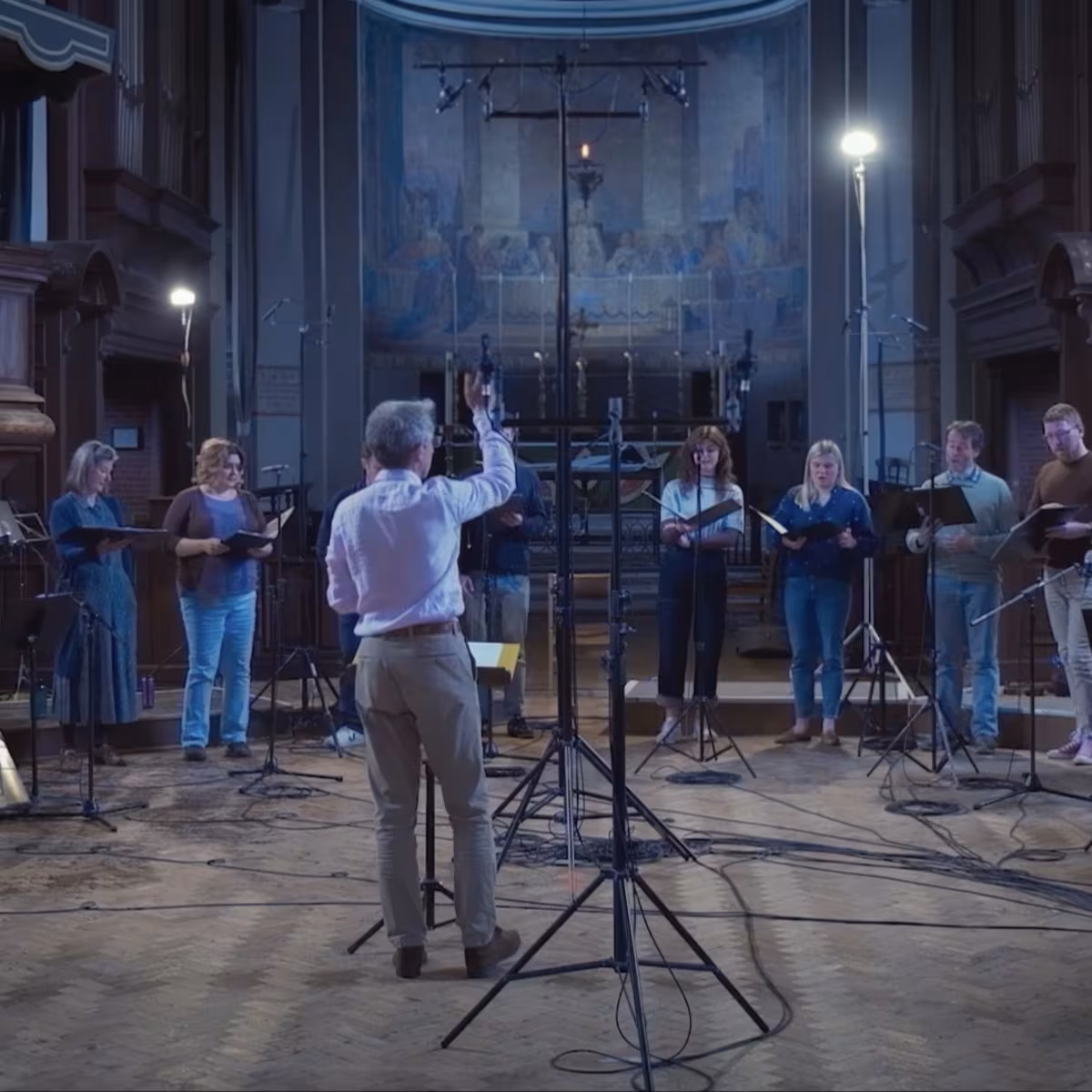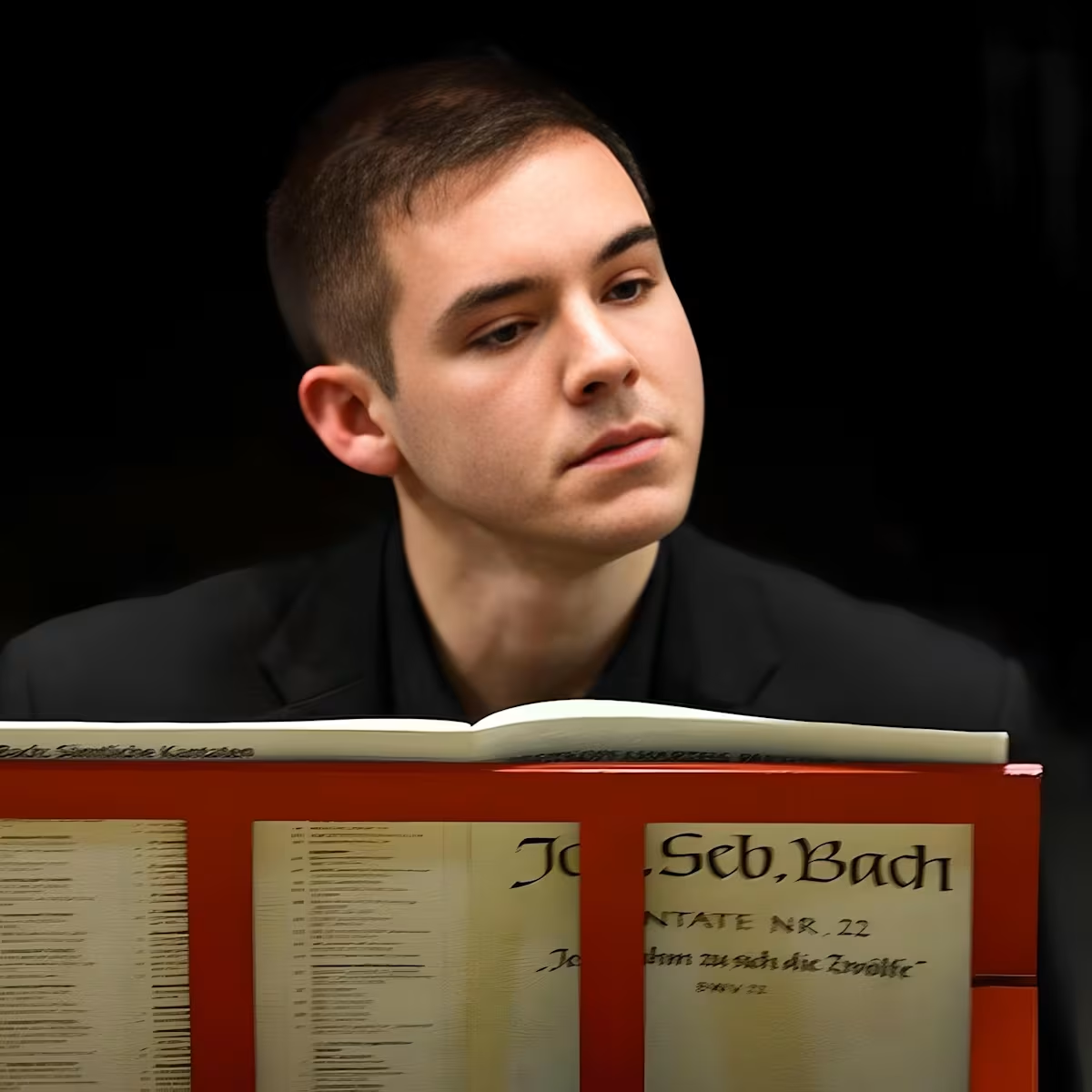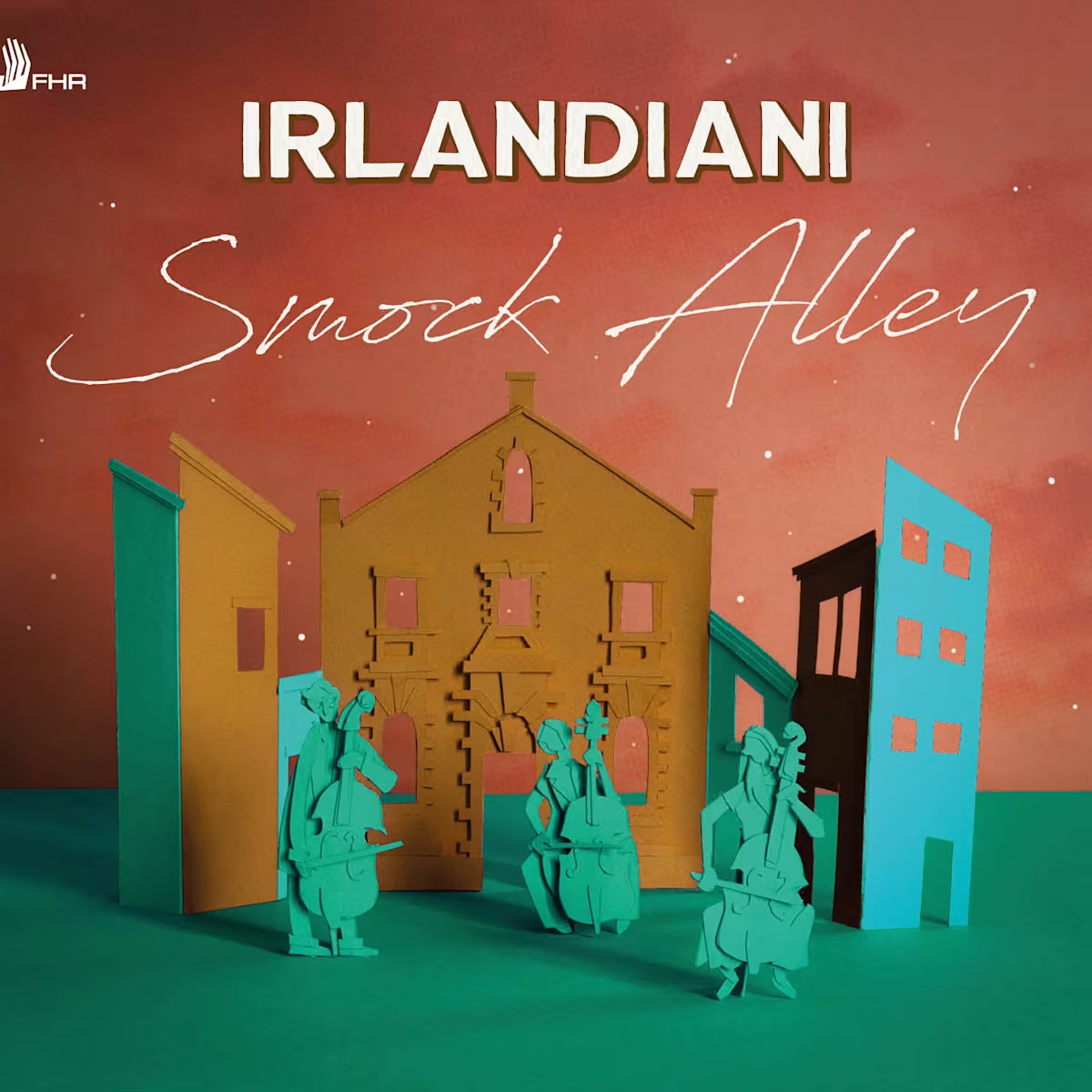Feature
Jonathan Sells: Redefining Tradition
From memory-based performance to collaborative leadership
Share this

Musicians are not the only ones whose career involves complicated moves from country to country; diplomats find themselves assigned to far-flung regions with unexpected consequences for their families. So when a rising international musician is partner to a diplomat a whole new set of possibilities opens up. Jonathan Sells has recently returned from a four-year spell in Jordan, where his wife was posted by the Swiss Development Agency. Sells reined in some of his worldwide engagements as a bass-baritone and set about contributing to the small but growing classical music community in Jordan, even playing double bass in the Amman Chamber Orchestra.
"Nobody tells you," he sighs, "that an international opera career and family life are incompatible. I haven't done opera since moving to Jordan but I love being on stage - the craft of it, the wigs..." Despite that, Amman was a rewarding change from the glamour of European and US touring but it does mean that, back at home near Bern, there is a certain amount of re-adjustment going on, not only to domestic arrangements (settling the children into new schools, sorting out house and paperwork) but taking a look at the diary now he is in theory fully available to "plug myself back into the European concert scene".
For the first decade of this century Sells had an impressive yet conventional start in the music business, reading music at Cambridge and then postgraduate singing studies at the Guildhall School in London. In 2010, though, he left Britain for the Zurich Opera Studio, which proved to be life-changing. Apart from the obvious jolt of meeting his future wife, in Switzerland he collected a string of prizes for his bass-baritone voice and worked at the Verbier Academy with Thomas Quastoff, Claudio Desderi (who was a wonderfully earthy Figaro for Bernard Haitink in the 1980s at Glyndebourne) and Tim Carroll. Still under 25, he honed his skills in early music at Les Jardin des Voix, the group for young singers set up by William Christie as an auxiliary part of Les Arts Florissants. From there he found himself back in the British scene with I Fagiolini and the Dunedin Consort but with his base in Bern making it easy for him to join the European tours of the Monteverdi Choir and Orchestra. He spent nine years with them and John Eliot Gardiner "played a huge role in my musical development."
Now that Gardiner is no longer involved with that ensemble, Sells has found himself not only singing with but conducting them. It was a move to the podium that he had been exploring but not really expecting to happen just yet at such a high level. "To be honest, being in the same year at Cambridge with Nicholas Collon and Robin Ticciati", who are respectively directors of the Aurora Orchestra and Glyndebourne Opera, "I rather gave up and lost heart too early. I wanted to be a conductor at the start but now [with Solomon's Knot] spend a lot of my time deliberately not conducting." These days he is more confident.

Through all of these moves, upheavals and changes of direction, there has been one constant ensemble in his music making: the early music collective Solomon's Knot. This group came together 16 years ago, and now all the singers perform from memory, as do (though less invariably) the instrumentalists, without a conductor. Suggestions for programmes come from any of the thirty-plus members in the collective, although Sells is the conduit and pulls the ideas together - artistic director without being a prime minister. The name comes from an ancient symbol for binding and he sees it as referring to the inseparable link between the singers, players, composer and audience. The group started by specialising in Handel oratorios but have now broadened out the repertoire into Bach and Strozzi, among others, including an 18th-century opera of unknown provenance called L'Ospedale, and contemporary composers. They were also quick to broaden too the concept of staging, working with a succession of international stage directors, choreographers and - most unusually - visual artists.
Given that Jonathan Sells and Nicholas Collon started out at the same time, it is perhaps no surprise that they both became interested in the idea of ensembles, not just soloists performing from memory. Collon brought together the Aurora Orchestra, which does not normally use period instruments and is more aligned to instrumentalists rather than singers. Sells says the two ensembles "are friends in a parallel world. We really do sing everything from memory every time, which is unusual in a concert or session. The fact that the singers have the music in their memory from the start makes rehearsing much easier. There's no note bashing to be done."
"In a chamber environment you get to explore things yourself and we have expanded that to the bigger ensemble. Everyone has to take responsibility in the moment, the trust is in them, which is free and exciting. Having no conductor means that there is no-one waving in a concert and drawing the focus of the audience away from the musicians. I can't control what others do. And when we collaborate with stage directors it means we can't always be looking at each other, which heightens our responses." They tested that to the extreme in the 2020 COVID period when they performed Purcell at the Laeiszhalle in Hamburg with eight singers and orchestra who had to keep three metres apart, with eleven metres from front to back, all of it broadcast on radio. "The secret to keeping together," he says, "was listening to each other breathe."

Sells shares the administration duties with Johnny Langridge (son of the great tenor, Philip - in fact the group has a remarkable number of members with parents well known in the music profession). "We do avoid total democracy." He draws a distinction between the various stages - planning, artistic direction, rehearsal and staging. "In rehearsal I lead and prepare the interpretation but then it can change and we adjust as we go along. There's always discussion and a flow of ideas."
This autumn Solomon's Knot's singers take on Monteverdi's Vespers, working with the Finnish Baroque Orchestra in Helsinki, then come back to Cambridge and the Wigmore Hall, where they have a residency. They finish the year with a programme of Bach Motets starting in Montreal before travelling to Manchester, Nottingham and York. As for Jonathan Sells himself, "I have become more and more specialised in early music but it's hard to say what will happen in the future." Given that he had only returned from Jordan for two days when we spoke and had still not moved back into the family home, that was probably not the best time to think too far ahead.
Solomon's Knot recently released recording of Bach Motets is available on CD and all major streaming services.
Author: Simon Mundy
Share this
Keep reading

I Fagiolini Revives Benevoli’s Masses
I Fagiolini revives Orazio Benevoli’s forgotten four-choir masses, showcasing the grandeur of 17th-century Rome. Written by Robert Hollingworth.

In conversation: Seb Gillot
Seb is a freelance organist, harpsichordist and conductor. He is continually in demand as a continuo player and early keyboard specialist.

Irlandiani - Smock Alley
Irlandiani explore 18th-century Italian-Irish musical connections in their new album 'Smock Alley'. Cellist Carina Drury talks about the album's origins.

